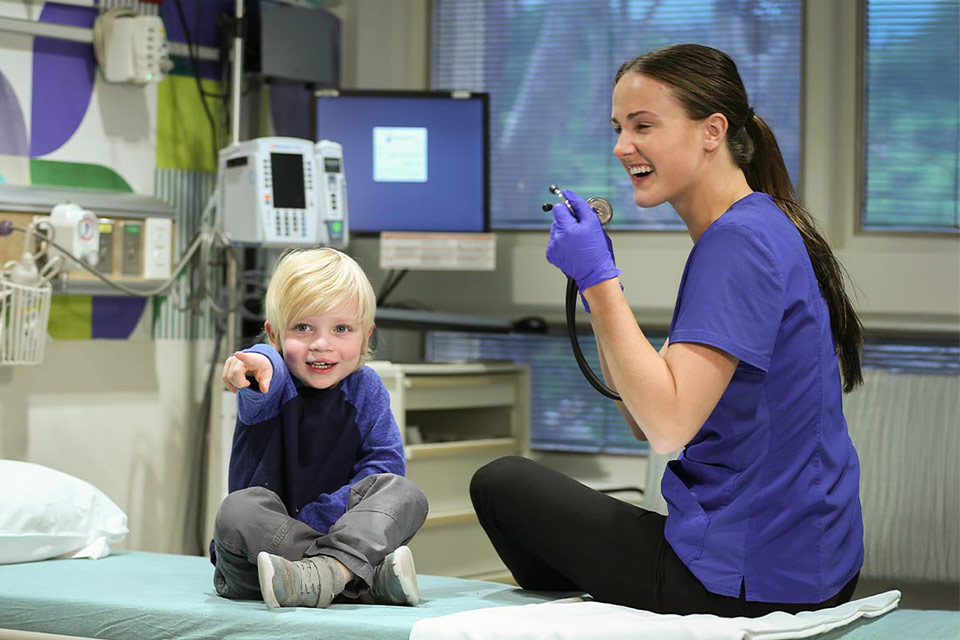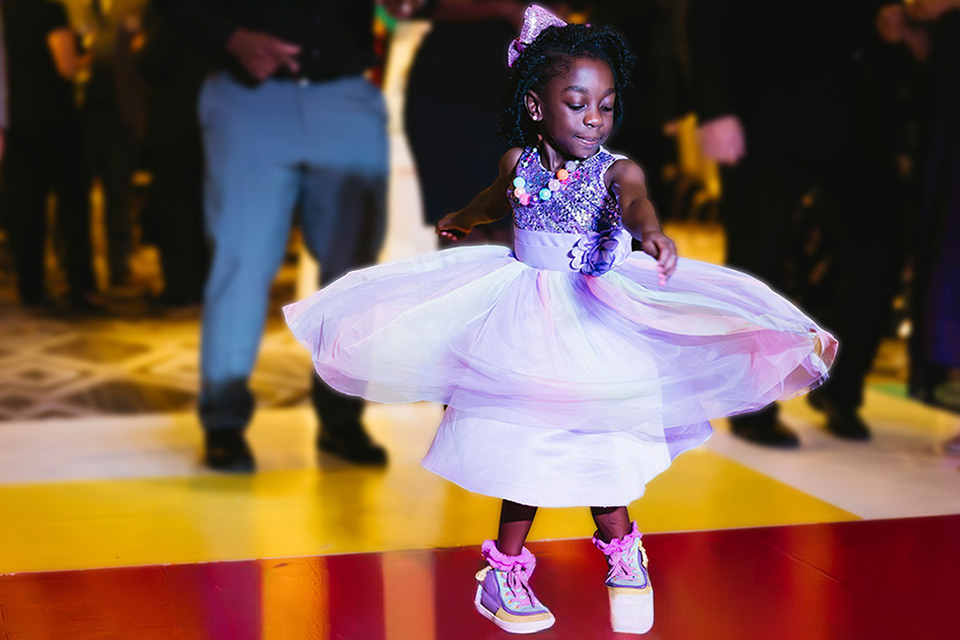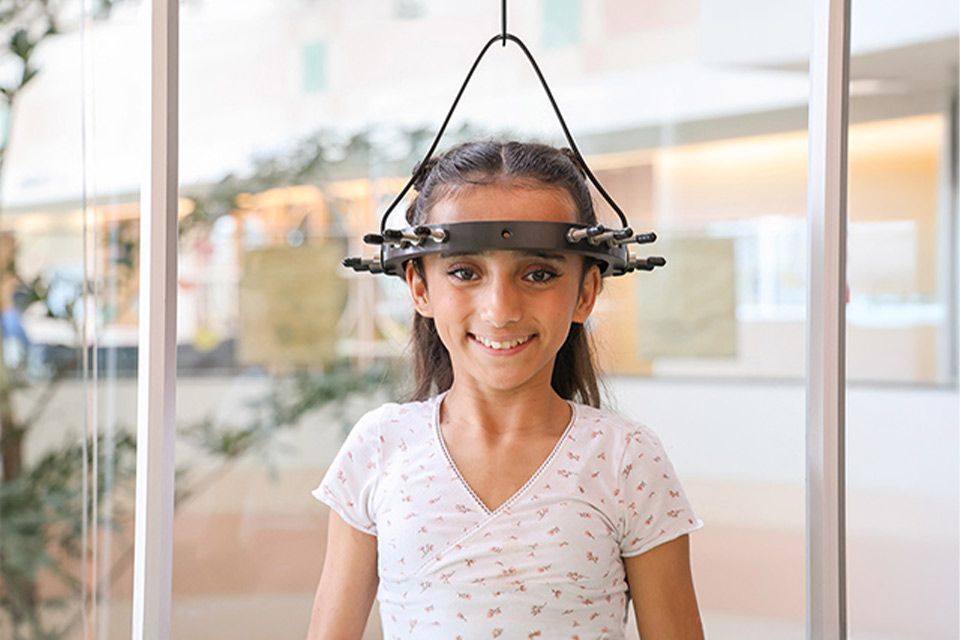Recreational Therapy
Recreational therapy may just seem like fun, but each interaction has a defined purpose.
At Shriners Children’s, we believe in the power of play! Activities are adapted to meet the need of each child, encouraging active, healthy lifestyles. The first step is finding out what the patient is passionate about. Knowing what their leisure interests are helps our team of recreational therapists customize a treatment plan that focuses on identifying ways children can participate in those activities as independently as possible.
From outdoor adventures to music programs to art projects and more, recreational therapy invites our patients to channel their energies towards the things that make them happy. They get to focus on being a kid again. Self-expression promotes self-esteem, and that is exactly why therapeutic recreation has such a significant impact on a patient’s social, physical, cognitive and psychological development.
Research shows that children who engage in therapeutic play are better prepared for medical procedures, experiencing less fear and anxiety leading up to major appointments. In the long term, they adjust to and accept the challenges associated with their medical journey much easier. Our trusted professionals know a patient’s psychological health is just as important as their physical health, making recreation a key component to the rehabilitation treatment plans offered at Shriners Children’s.
After leaving the hospital, our team of therapists want to ensure your child has a smooth transition back into everyday life, with a regained sense of confidence in themselves, and maybe even a new hobby to enjoy. Adaptive sports teams are a great way for patients to stay motivated beyond the four walls of our facility, and connecting kids to opportunities like this is just another role of the recreational therapist.
Your child’s well-being is important to us and continues to be, long after their latest surgery or follow-up clinic appointment. That is why Shriners Children’s continues to search for new and innovative ways to deliver recreational therapy to patients, regardless of the families’ ability to pay or insurance status.
Specific treatments and services may vary by location. Please contact a specific location for more information.
Play is a way for [patients] to cope with being in the hospital and maintain normalcy. Recreational therapists are the link to that.






